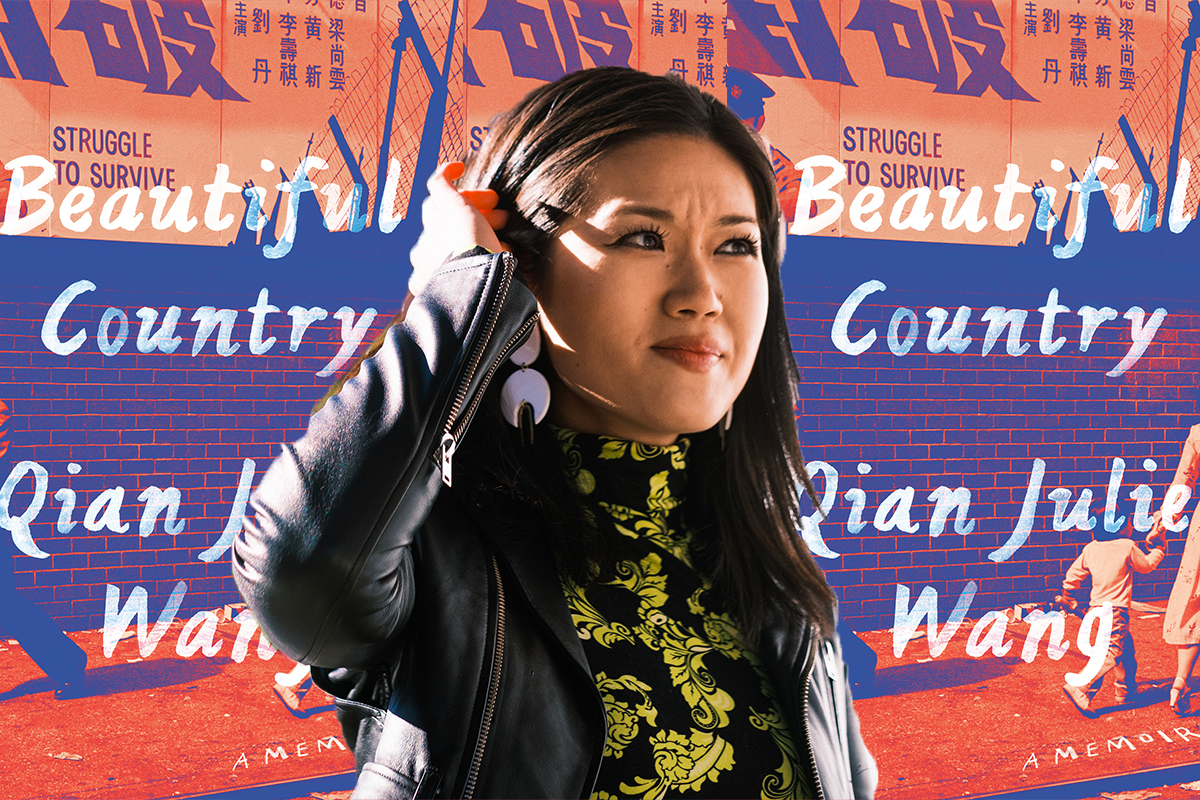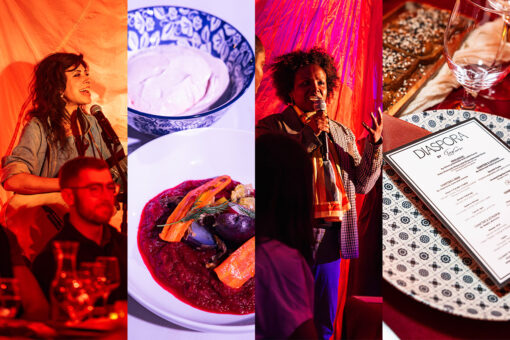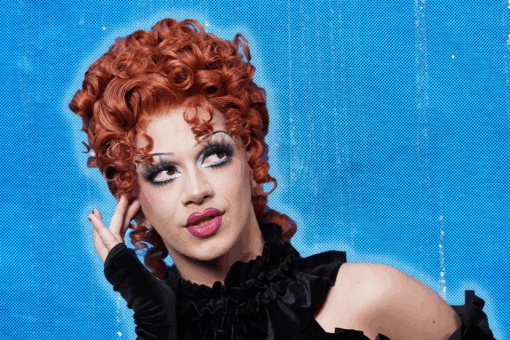Qian Julie Wang grew up in libraries. Coming to America at age 7, she was thrown into the brand new world of New York City. Soon, she was spending all her free time in the local Chinatown library, soaking up as much English as possible. It became her second home, a place of safety. Now, she’s telling her story for the first time — buoyed by the hope of reaching those in libraries who were just like her.
Wang and her parents were undocumented, and the 2016 election — which occurred just after she became a naturalized American citizen — spurred her to begin writing her memoir on her phone on the subway. Those subway snippets would become “Beautiful Country,” out September 7, a gorgeous and heartfelt tale of Wang’s childhood as an undocumented New Yorker. When she’s not writing incredible memoirs, Wang is a litigator working as the managing partner of Gottlieb & Wang LLP — a firm dedicated to advocating for education and disability rights.
Her story is a modern day Jewish American immigrant tale, and over e-mail we spoke about what it means to have this book out in the world, her work with the Jews of Color community at her synagogue, and the meaningful publication of “Beautiful Country” on Rosh Hashanah.
In many ways, “Beautiful Country” is *such* an American story. What inspired you to share your tale of being an undocumented child?
I’d always dreamed about writing this book. While I grew up learning English on library books, I never found a book that depicted characters who looked like me and lived in the way my parents and I did. It was my biggest and wildest ambition to write a book that might allow others out there to see themselves reflected in literature, and have them know that it is possible to survive similar circumstances. Even so, I figured I would never make it happen, because I lived under messaging from all directions, my parents included, that my past was shameful and had to be kept hidden.
It wasn’t until the discourse of the 2016 election, which took place just six months after I became a naturalized U.S. citizen, that I discovered that I had a newfound power and thus responsibility to share my story, that at that juncture of my life, I was making an actual decision to stay quiet — a privilege that millions of undocumented immigrants do not have. It was then that I realized that what I had long thought of as singularly mine was no longer my secret to keep.
What does it mean to you to be Jewish?
For me, being Jewish cannot be separated from tikkun olam, the concept that calls upon us to repair the world. For many years of my life, I operated by a set of clear and abiding principles, and asked inconvenient, challenging questions, but I had no formal spiritual framework. When I discovered Judaism, I finally felt complete. I realized that I had been Jewish all along; I simply hadn’t known it. Central to tikkun olam is hearing the call of the voiceless and fighting for justice in every available avenue. It also means standing up and speaking out even when it might be uncomfortable to do so — to be rooted first and foremost in our faith in equality.
What’s your favorite part about being Jewish?
Without a doubt, it has been the Jews of Color community. After immigrating to America, I was never able to feel fully at home in a public space. That changed when I started gathering with my fellow Jews of Color. In that sphere, I have been so fortunate to find lifelong friends — my sisters and family in spirit. We are not a monolith by any means, but the unity of intersectionality is a beautiful thing. There was probably no better way to discover kindred spirits with whom I share my passion for activism, racial justice, immigrants’ rights and spirituality.
How did you balance working as a litigator and writing your memoir?
Balance is a concept that I think few litigators know (I certainly don’t!). We are in overdrive pretty much all the time. I wrote the first draft of “Beautiful Country” while making partner at a national firm. The only way to balance it with working 60-80 hours a week was a concrete rule: As long as I was on the subway platform or on the subway on my way to or from work, I was writing on my phone. Even with this rule though, there were months (and up to nearly a year) when I just had to take time off writing entirely.
This was particularly the case in early 2019, because I was also planning my wedding at the time. I gave myself permission then to stop working on the book, not knowing if I would ever find my way back. But in late September 2019, on our flight to our honeymoon, I realized that the break had allowed me to subconsciously process everything else that needed to go into my book. I pulled my phone out and started typing on that flight, and gave myself until December 31, 2019 to finish the first draft or forget about it for good. At that point, I had maybe one third to half of the book finished. But two months later, on December 30, I was done with the entire draft.
Something I was really struck by was how much reading, and your local library, was a safe space for you as a child (as a fellow kid who looooved going to the library!). Can you talk a little bit more about this?
The public library is a cornerstone of our society and provides vital access to resources and knowledge to those who might not otherwise be able to afford it. Librarians are our unsung, modern-day heroes. For me growing up, the library was my second home. It was safe and I could always count on it to supply my old and new family and friends in the form of beloved characters — and all for free. As a child who felt lonely and lost most of the time, the Chatham Square public library branch in Chinatown was my anchor in my American life. It was where I learned English, discovered my favorite books and learned what it meant to feel comfortable in my new land. It was there that I never had to question whether or not I belonged.
What were some influential books for you growing up?
In my book, I share my story about receiving my copy of “Charlotte’s Web” (which I still have!) as a gift from my beloved third grade teacher. The book will forever represent to me the first time I felt accepted in the United States. But there are so many other titles that brought vibrancy to my childhood years: every single installment of “The Baby-Sitter’s Club,” the “Sweet Valley Twins” series, “The Diary of Anne Frank,” “Where the Red Fern Grows,” “Number the Stars,” “Mrs. Frisby and the Rats of NIMH,” “The Giver.”
What does it mean to you that other young Chinese kids will be able to read your story now? To check it out at their local library?
This is the very reason I wrote the book: this dream that another Chinese, Asian American, immigrant, poor or hungry kid might come upon it at their public library and might find in it something that gives them hope or solace to keep going. I think it is easy to forget as adults how very difficult and terrifying it is to be a child navigating the world. There have been many times in the publication process when I have wondered whether I was crazy to go through with putting this book out into the world. But each time I returned to that vision of a preteen discovering my book at the library when she needs it most, all of my fears fall by the wayside.
Has your family read “Beautiful Country”? How did they react?
My parents have read parts of it, and I have fact-checked certain memories with them, but they have not read the whole thing! My parents remain deeply ashamed and regretful of the past, and I don’t think they’ve ever forgiven themselves for my childhood years. It took me six months after the book deal to work up the courage to tell my parents. And when I did, they expressed profound anxiety about the government coming after us, even though we are all on legal status now. I suspect that in many ways, my book feels to my father like history repeating itself: His childhood was marked by his brother writing a daring, honest and critical essay that had his entire family persecuted during the Cultural Revolution. I regret that the publication of my book might have awakened that sense of trauma in him, and I badly want to shield him from it.
My small hope is that if my parents don’t read the full book until it’s available to the public, they won’t know the full scale of details shared, so they won’t be sitting there, counting down the days to when ICE might be banging down their doors. And my dream is that the book’s publication might help them finally find some forgiveness and healing over the past.
What memoirs, or other books, inspired you in your writing process?
I love memoirs that read like novels — the ones that are not just factual but also artistic. On this front, Frank McCourt’s “Angela’s Ashes” and Maya Angelou’s “I Know Why the Caged Bird Sings” were my north stars in crafting my own book.
Shifting focus, can you tell us about your work with your Jews of Color group?
American Judaism is Ashkenazi-centric, even though, historically and globally, Judaism is far more diverse. That myopic focus in the U.S. tends to result in Jewish spaces that feel deeply unwelcoming, and often even overtly hostile, to Jews of Color. There have been more than one report of, for instance, Black Jews being followed by synagogue security guards and Asian Jews being subjected to fetishized comments during services (if I had a nickel every time a man came up to me during prayer and told me about an Asian woman he once dated…). All of us are stared at and assumed to be new converts or gentile. Rarely are we able able to attend services without receiving at least some inappropriate, offensive remark.
As such, our group’s mission is first and foremost to build a safe space for Jews of Color to connect and engage in their religion — shelter for when we feel utterly unwanted in all other Jewish spaces. Beyond that, we also work to create platforms for Jews of Color within our synagogue and in the Jewish community and to engage racial justice work and activism outside the temple and outside the Jewish world. Judaism is the religion of the enslaved, the uprooted, the marginalized, and the other, and we are dedicated to making sure that its American community lives up to its roots.
As we approach the Jewish New Year, any Rosh Hashanah plans you are looking forward to?
This year’s Rosh Hashanah is major for me for many reasons. First, it is the day my book comes out. Second, I am delighted to be giving a speech that morning at Central Synagogue (live-streamed worldwide here) and in Radio City Music Hall. Most of all, though, I am really looking forward to getting together with family at the seder. We had to forgo one last year, so I know we will be more than making up for it this year around.
What do you hope readers take away from “Beautiful Country”?
My book is a celebration of childhood, that wondrous time when we were all still so tender and open. It’s a voyage into the love, pain and secrets of family, a train ride through the confusion, resilience and delight of coming of age. If readers can take away anything from the experience, I hope it is that, beyond the external labels and divides, we are all not that different from each other. There is universality in humanity and in the childhood experience in particular. If my book might inspire readers to revisit their own childhood, to recognize and honor the resilience of the child self that still dwells in all of us, then it would be a dream come true.



